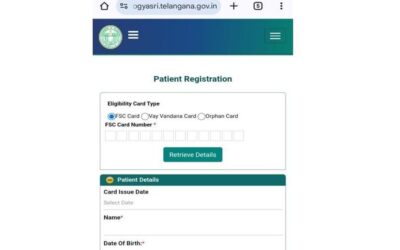Killing a CEO is not the way to stop scandalous behavior by health insurance companies. So what is it?
Companies and agencies that buy commercial health insurance and market programs of the Law on Health Care at Low Price and Medicaid and the care of affordable care can stop health insurance practices that delay and deny attention to Patients through three actions: they must demand the abolition of prior approval of medical care and prescriptions; It requires that the denial rates of the insurance company be published in all marketing materials; and force fast and fair appeals of denial claim. Insurance companies have lied to their customers about how their practices protect patients and save money. They don’t. The health insurance of snow practices and delay blocks access to the necessary care and the costs of change to patients and suppliers, while increasing the profits of insurance companies.
Prior authorization for medical care began in the mid -1980s as a marketing scheme by health insurance companies. I know. He was in the room where it happened when he was an officer of the Health Data Institute, a company that developed tools and techniques of administered care.
Insurance companies wanted to demonstrate that they were “doing something” to help quickly control the increase in medical care costs. Some insurance companies earned money charging more for “prior certification to admission.” Then, there was no evidence that previous authorizations for any medical test or procedure protect patients, would improve the quality of care or save money. Forty years later, there is still not much evidence that they do any good. In fact, they cause harm. About 25 percent of doctors in a recent national survey reported that prior authorization delays led to the hospitalization of a patient, a potentially deadly event that required emergency intervention or permanent disability, birth or death defect. Some things are too broken to be solved or renovated. Prior authorization is one of them.
The problems with the previous authorizations are responsible for almost half of all denials of medical claims and are the starting point of additional claim denials that increase the costs to patients or avoid that they obtain the necessary care. One in 6 patients and 23 percent of patients with mental illnesses reported difficulties with prior authorization in a 2023 Kaiser Family Foundation survey. More than half of the patients who reported prior authorization problems also found other claim denials, such as the inability to obtain medicines ordered by their doctors. Almost all doctors (95 percent) reported that previous authorizations “a bit or significantly” increased the doctor’s exhaustion in a recent survey of the American Medical Association. Removing previous authorizations would be a mutual benefit for patients and medical care providers, and probably would not increase the total medical care costs despite the unfounded fears of the actuaries of insurance companies. The most timely access to the necessary care can save more money than delay or deny it.
Require that insurance companies publish their prior authorization denial rates in all marketing materials and platforms would allow patients and sponsors of plans to know how likely their claim would be paid before buying insurance. The low -price health care law requires insurance companies to compile denial rates for the plans offered in their markets, but the information is not widely available, and the regulations to publish it have not been applied. There are no similar requirements for commercial plans, Medicaid or Medicare.
Denial of claims is a very effective way for health insurance companies to win money. Only half of all bills are ultimately revoked, resulting in payments to attention suppliers. The process to appeal a denial is so complicated that less than 1 percent of patients bother to appeal, and most of them lose in a process controlled by insurance companies. Very few patients even know that they are entitled to an external appeal when the insurance company rejected them. Pharmacy benefits managers, often owned by health insurance companies, increase their profits through prior authorization. Sometimes they pay only brand medications, benefits managers get an overload for promotion. Transparent, fast and independent reviews of medical care, recipes and denials of invoices can be implemented if the companies and agencies that buy insurance tell the insurance companies to do it.
Finish prior authorization, publish denial rates and force rapid appeals, fair appeals would eliminate most of medical claims denials and delays in care. These changes would increase access to medical services and reduce patient anxiety. They would also create an atmosphere for legitimate investigation into policies that improve the patient’s results, improve the quality of care and avoid wasteful and harmful medical practices.
David L. Rosenbloom is Professor Emeritus at the Faculty of Public Health at Boston University. He served as a health commissioner and hospitals for the city of Boston from 1975 to 1983.
(Tagstotranslate) say more









